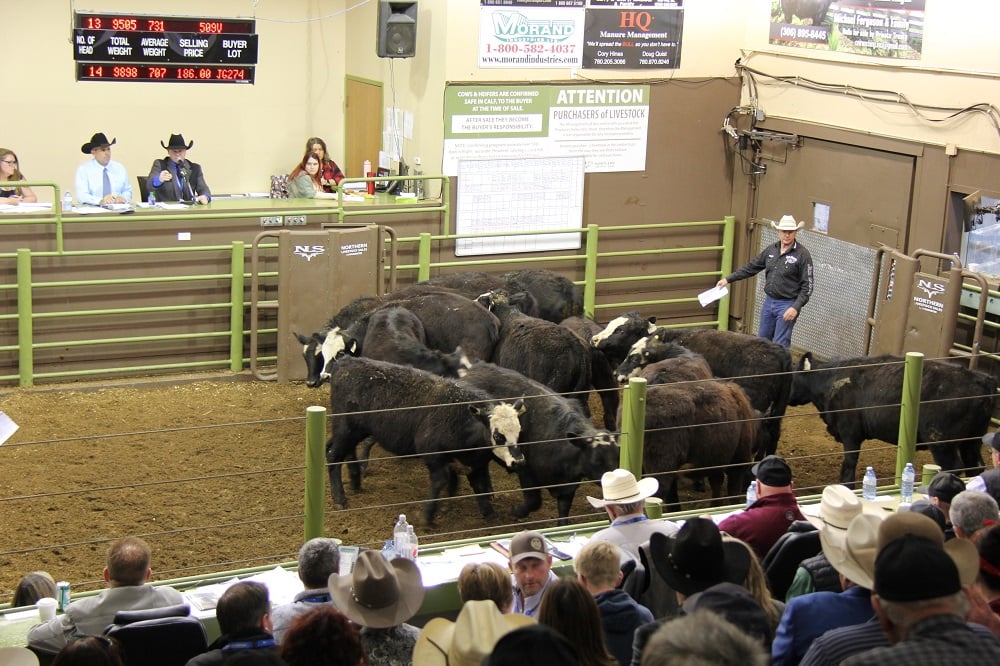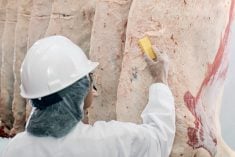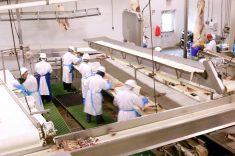Canadians could be forgiven if they felt they dodged a bullet the first full week in March.
Early in that week, President Trump announced blanket foreign steel tariffs of 25 per cent and 10 per cent on aluminum. Canada not only supplies half of the steel imported into the U.S. but half of American exports go to Canada. He indicated there would be no exemptions.
While the U.S. steel industry was happy, steel-using industries, free market supporters and consumers who realized they are the ones paying the tax complained mightily. Over 100 Republican and even 60 Democratic members of Congress signed letters of protest.
Read Also

Cattle Market Summary
Break-evens, cow and calf prices, plus market summaries courtesy of Canfax and Beef Farmers of Ontario. Cost of Production May…
As the White House scurried around preparing for an imminent signing ceremony, word from the Wall Street Journal was that a mechanism was being devised that would allow concessions equal to the value of the steel or aluminum imports be offset in some way by the exporting country. However, the tariff would have to be increased on the remaining countries to make up the total amount the administration has set that needed to be made up, according to protectionist adviser Peter Navarro.
By week’s end, not only had President Trump indicated Canada and Mexico would be exempt while NAFTA negotiations were ongoing and permanently exempt if a good treaty was concluded, Trump indicated all the countries involved in exporting steel and aluminum to the U.S. would be eligible for exemptions if they came to the administration and could negotiate concessions within 15 days.
Immediately, countries were lining up for appointments to negotiate exemption deals with the administration. As the rough details sank in, it began to look like Trump had been more clever than we thought. U.S. industries have been complaining that none of the promised bilateral trade deals have materialized while Trump pulled the U.S. out of multilateral agreements like TPP and insisted on renegotiating NAFTA.
Yet here were countries lining up to negotiate bilateral deals. How broad and extensive the deals will be, we don’t know, but countries will be motivated. Will this be like your car dealer offering free checkups… and finding things that need to be fixed?
At least one commentator over the first weekend, noted free market economist and adviser to the Trump administration, Larry Kudlow, said he wouldn’t be surprised if not one country ended up paying tariffs on steel or aluminum. Question is, they will have to give up something to get off the list. How does that affect retaliation?
Not only did Canada dodge steel tariffs or the need to retaliate for now, the 11 countries involved in the TPP agreement finalized the treaty — without the U.S. That means Canada’s high-quality, grain-fed beef will soon be getting significant advantages in many markets, including Japan. All that remains is for the countries to ratify the agreement.
The treaty goes into effect 60 days after six of the countries formally ratify the deal. Unfortunately for Canadian cattlemen, it sounds like their government is not in a big hurry, explaining that the legislative calendar is full until fall. Unless six other countries act before then, the benefits may be delayed for the Canadian beef industry.
How did all this come together so quickly? How did Canada suddenly find itself with another big pressure point to find solutions for NAFTA negotiations?
Contrary to governments peopled with career politicians, Trump and some of his staff operate in big company, dog-eat-dog competitive overdrive. Trump’s chief economic adviser, Gary Cohn, had reportedly told Trump a few weeks ago that with the tax reform bill done, he needed some big project to work on or he was wasting time. Unfortunately, Cohn, a free market, anti-tariff guy was losing the battle within the White House on tariffs. Peter Navarro, the professor from the University of California now being labelled as a “heterodox economist,” — a nice way of saying far-out-on-a-limb by himself — had gone from being buried in the basement of White House hierarchy to suddenly being top-shelf and smiling grimly at cameras in press moments with the President.
Navarro has been our chief worry all along, notwithstanding all the good free market growth policies Trump has espoused. Navarro came up on our radar a half-dozen years ago and we hoped never to hear his opinions go further than the CDs of his lectures, sounding like echoes from the Smoot-Hawley tariff bill from the 1930s. Unfortunately, he has been given an opportunity. Trump actually mentioned President William McKinley. As a congressman, McKinley introduced a bill taking the tariff on many goods to nearly 50 per cent in 1890. Trump did not mention that tariffs were the primary source of government funding for America until the sad invention of the permanent income tax in 1913.
Deciding the tariffs were the last straw, Cohn resigned. The suddenness of the announcement and the signing ceremony likely had to do with politics. The next day, Trump was speaking to a huge crowd in western Pennsylvania where a special election was being held. Helping the steel industry was good politics in that part of the country — although the district’s many free market Republicans, who had long ago abandoned establishment Republican politics, would differ.
All this is background: the next round of NAFTA talks begin early in April in Washington.
















